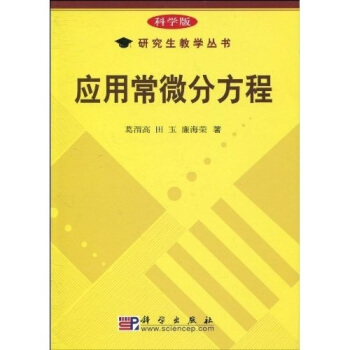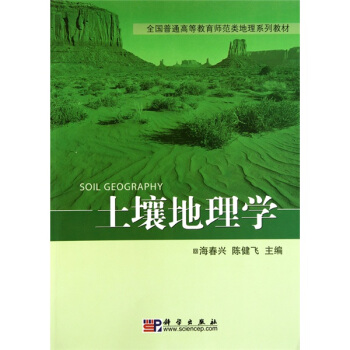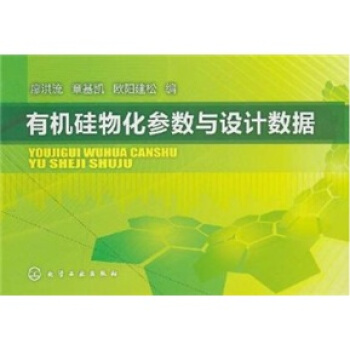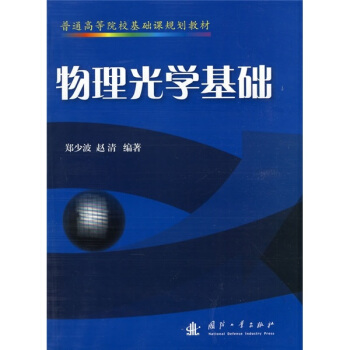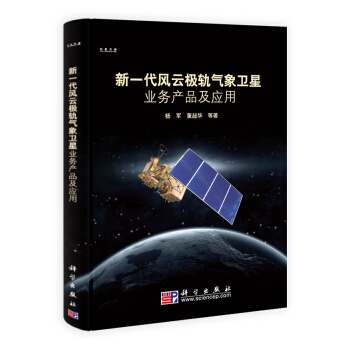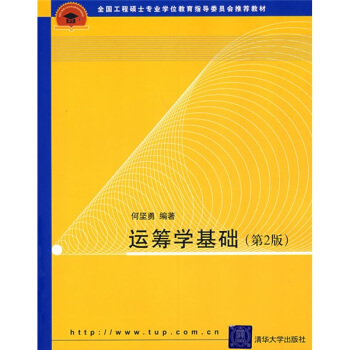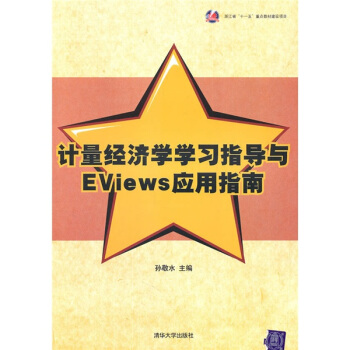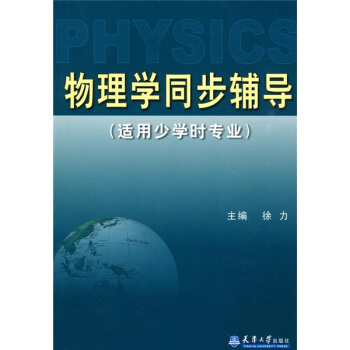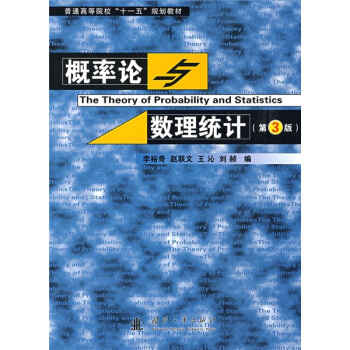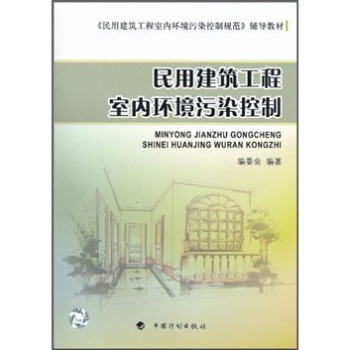![等離子體物理學基礎(第3版)(英文版) [Fundamentals of Plasma Physics:Third Edition]](https://pic.tinynews.org/10184607/275a08d3-4563-4aba-b1b9-0a1ae5ed924a.jpg)
等離子體物理學基礎(第3版)(英文版) [Fundamentals of Plasma Physics:Third Edition] pdf epub mobi txt 电子书 下载 2025
- Plasma Physics
- Fusion
- Astrophysics
- Space Physics
- Electromagnetism
- High-Temperature Plasma
- Low-Temperature Plasma
- Plasma Diagnostics
- Non-equilibrium Plasma
- Plasma Applications

具体描述
內容簡介
《等離子體物理學基礎(第3版)(英文版)》係統地介紹瞭等離子體物理學的基本理論及其在很多重要等離子體現象中的應用。《等離子體物理學基礎(第3版)(英文版)》內容全麵,結構閤理,闡述清晰。作者注重錶達的簡潔性,沒有拘泥於形式,對自學和進階很有好處。從統計動力學討論等離子體現象是《等離子體物理學基礎(第3版)(英文版)》的一大特色。另外,作者對數學處理技巧說明得非常詳細,列舉瞭數學推導的中間步驟,這些通常是留給讀者自己完成的,同時強調瞭這些公式的物理解釋,幫助讀者獲得更深入的理解。書中設計的習題是內容的重要組成部分,也是進一步提高的齣發點。閱讀《等離子體物理學基礎(第3版)(英文版)》需要經典力學和電動力學的基本知識。《等離子體物理學基礎(第3版)(英文版)》適閤於初次學習等離子體物理的高年級本科生和一年級研究生,同時也適用於對等離子體現象以及相關領域諸如空間物理和應用電磁學等感興趣的研究人員。目次:簡介;穩恒和均勻電磁場中的帶電粒子運動;非均勻靜磁場中的帶電粒子運動;隨時間變化的電磁場中的帶電粒子運動;等離子體動力學理論基礎;平均值和宏觀變量;平衡態;宏觀輸運方程;導電流體的宏觀方程;等離子體電導率和擴散;若乾基本等離子體現象;磁流體動力學的簡單應用;縮聚效應;自由空間電磁波;磁流體動力學波;冷等離子體波;暖等離子體波;熱各嚮同性等離子體波;熱磁化等離子體波;等離子體中粒子間相互作用;波爾茲曼和佛剋爾—普朗剋方程;等離子體中的輸運過程;附錄A:常用的矢量關係;附錄B:迪卡爾坐標和麯綫坐標中的常用關係;附錄C:物理常數:附錄D:物理單位間的換算因子;附錄齣部分重要的等離子體參數;附錄F:若乾典型等離子體的近似量極;索引。讀者對象:物理,化學和材料專業的高年級本科生、研究生和相關專業的科研人員。
內頁插圖
目錄
PREFACE1.INTRODUCTION
1. General Properties of Plasmas
1.1 Definition of a Plasma
1.2 Plasma as the Fourth State of Matter
1.3 Plasma Production
1.4 Particle Interactions and Collective Effects
1.5 Some Basic Plasma Phenomena
2. Criteria for the Definition of a Plasma
2.1 Macroscopic Neutrality
2.2 Debye Shielding
2.3 The Plasma Frequency
3. The Occurrence of Plasmas in Nature
3.1 The Sun and its Atmosphere
3.2 The Solar Wind
3.3 The Magnetosphere and the Van Allen Radiation Belts
3.4 The Ionosphere
3.5 Plasmas Beyond the Solar System
4. Applications of Plasma Physics
4.1 Controlled Thermonuclear Fusion
4.2 The Magnetohydrodynamic Generator
4.3 Plasma Propulsion
4.4 Other Plasma Devices
5. Theoretical Description of Plasma Phenomena
5.1 General Considerations on a Self-Consistent Formulation
5.2 Theoretical Approaches
Problems
2.CHARGED PARTIE MOTION IN CONSTANT AND UNIFORM UNIFORM ELECTROMAGNETIC FIELDS
1. Introduction
2. Energy Conservation
3. Uniform Electrostatic Field
4. Uniform Magnetostatic Field
4.1 Formal Solution of the Equation of Motion
4.2 Solution in Cartesian Coordinates
4.3 Magnetic Moment
4.4 Magnetization Current
5. Uniform Electrostatic and Magnetostatic Fields
5.1 Formal Solution of the Equation of Motion
5.2 Solution in Cartesian Coordinates
6. Drift Due to an External Force
Problems
3.CHARGED PARTICLE MOTION IN NONUNIFORM MAGNETOSTATIA FIELDS
1. Introduction
2. Spatial Variation of the Magnetic Field
2.1 Divergence Terms
2.2 Gradient and Curvature Terms
2.3 Shear Terms
3. Equation of Motion in the First-Order Approximation
4. Average Force Over One Gyration Period
4.1 Parallel Force
4.2 Perpendicular Force
4.3 Total Average Force
5. Gradient Drift
6. Parallel Acceleration of the Guiding Center
6.1 Invariance of the Orbital Magnetic Moment and of the Magnetic Flux
6.2 Magnetic Mirror Effect
6.3 The Longitudinal Adiabatic Invariant
7. Curvature Drift
8. Combined Gradient-Curvature Drift
Problems
4.CHARGED PARTICLE MOTION IN TIME-VARYING ELECTROMAGNETIC FIELDS
1. Introduction
2. Slowly Time-Varying Electric Field
2.1 Equation of Motion and Polarization Drift
2.2 Plasma Dielectric Constant
3. Electric Field with Arbitrary Time Variation
3.1 Solution of the Equation of Motion
3.2 Physical Interpretation
3.3 Mobility Dyad
3.4 Plasma Conductivity Dyad
3.5 Cyclotron Resonance
4. Time-Varying Magnetic Field and Space-Varying Electric Field
4.1 Equation of Motion and Adiabatic Invariants
4.2 Magnetic Heating of a Plasma
5. Summary of Guiding Center Drifts and Current Densities
5.1 Guiding Center Drifts
5.2 Current Densities
Problems
5.Summary of Guiding Center Drifts and Current Densities
Problems
1. Introduction
2. Phase Space
2.1 Single-Particle Phase Space
2.2 Many-Particle Phase Space
2.3 Volume Elements
3. Distribution Function
4. Number Density and Average Velocity
5. The Boltzmann Equation
5.1 Collisionless Boltzmann Equation
5.2 Jacobian of the Transformation in Phase Space
5.3 Effects of Particle Interactions
6. Relaxation Model for the Collision Term
7. The Vlasov Equation
Problems
6.AVERAGE VALUES AND MACROSCOPIC VARIABLES
1. Average Value of a Physical Quantity
2. Average Velocity and Peculiar Velocity
3. Flux
4. Particle Current Density
5. Momentum Flow Dyad or Tensor
6. Pressure Dyad or Tensor
6.1 Concept of Pressure
6.2 Force per Unit Area
6.3 Force per Unit Volume
6.4 Scalar Pressure and Absolute Temperature
7. Heat Flow Vector
8. Heat Flow Triad
9. Total Energy Flux Triad
……
10.Higher Moments of the Distribution Function
Problems
7. THE EQUILIBRIUM STATE
1. The Equilibrium State Distribution Function
2. The Most Probable Distribution
3. Mixture of Various Particle Species
4. Properties of the Maxwell-Boltzmann Distribution Function
5. Equilibrium in the Presence of an External Force
6. Degree of Ionization in Equilibrium and the Saha Equation
Problems
8. MACROSCOPIC TRANSPSRT EQUATIONS
1. Moments of the Boltzmann Equation
2. General Transport Equation
3. Conservation of Mass
4. Conservation of Momentum Conservation of Energy
6. The Cold Plasma Model
7. The Warm Plasma Model
Problems
9. MACROSCOPIC EQUATIONS FOR A CONDUCTING FLUID
1. Macroscopic Variables for a Plasma as a Conducting Fluid
2. Continuity Equation
3. Equation of Motion
4. Energy Equation
5. Elect rodynamic Equations for a Conducting Fluid
6. Simplified Magnetohydrodynamic Equations
Problems
10. PALSMA CONDUCTIVITY AND DIFFUSION
1. Introduction
2. The Langevin Equation
3. Linearization of the Langevin Equation
4. DC Conductivity and Electron Mobility
5. AC Conductivity and Electron Mobility
6. Conductivity with Ion Motion
7. Plasma as a Dielectric Medium
8. Free Electron Diffusion
9. Electron Diffusion in a Magnetic Field
10. Ambipolar Diffusion
11. Diffusion in a Fully Ionized Plasma
Problems
11. SOME BASIC PLASMA PHENOMENA
1. Electron Plasma Oscillations
2. The Debye Shielding Problem
3. Debye Shielding Using the Vlasov Equation
4. Plasma Sheath
5. Plasma Probe
Problems
12. SIMPLE APPLICATIONS OF MAGETOHYORODYNAMICS
1. Fundamental Equations of Magnetohydrodynamics
2. Magnetic Viscosity and Reynolds Number
3. Diffusion of Magnetic Field Lines
4. Freezing of Magnetic Field Lines to the Plasma
5. Magnetic Pressure
6. Isobaric Surfaces
7. Plasma Confinement in a Magnetic Field
Problems
13. THE PINCH EFFECT
14. ELECTROMAGNETIC WAVES IN FREE SPACE
1. Introduction
2. The Equilibrium Pinch
3. The Bennett Pinch
4. Dynamic Model of the Pinch
5. Instabilities in a Pinched Plasma Column
6. The Sausage Instability
7. The Kink Instability
8. Convex Field Configurations
Problems
15. MAGNETOHYDRODYNAMIC WAVES
1. The Wave Equation
2. Solution in Plane Waves
3. Harmonic Waves
4. Polarization
5. Energy Flow
6. Wave Packets and Group Velocity
Problems
16. WAVES IN COLD PLASMAS
1. Introduction
2. MHD Equations for a Compressible
3. Propagation Perpendicular to the Magnetic Field
4. Propagation Parallel to the Magnetic Field
5. Propagation at Arbitrary Directions
6. Effect of Displacement Current
7. Damping of MHD Waves Problems
5. Wave Propagation in Magnetized Cold Plasmas
6. Propagation Parallel to Bo
7. Propagation Perpendicular to Bo
8. Propagation at Arbitrary Directions
9. Some Special Wave Phenomena in Cold Plasmas
Problems
17. WSVES IN WARM PLASMAS
1. Introduction
2. Waves in a Fully Ionized Isotropic Warm Plasma
3. Basic Equations for Waves in a Warm Magnetoplasma
4. Waves in a Warm Electron Gas in a Magnetic Field
5. Waves in a Fully Ionized Warm Magnetoplasma
6. Summary
Problems
18. WSVES IN HOT ISOTROPIC PLASMAN
1. Introduction
2. Basic Equations
3. General Results for a Plane Wave
4. Electrostatic Longitudinal Wave in a Hot Isotropic Plasma
5. Transverse Wave in a Hot Isotropic Plasma
6. The Two-Stream Instability
7. Summary
Problems
19. WAVES IN HOT MAGNETIZED PLASMAS
1. Introduction
2. Wave Propagation Along the Magnetostatic Field in a Hot Plasma
3. Wave Propagation Across the Magnetostatic Field in a Hot Plasma
4. Summary
Problems
20. PARTICLE INTERACTIONS IN PLASMAS
1. Introduction
2. Binary Collisions
3. Dynamics of Binary Collisions
4. Evaluation of the Scattering Angle
5. Cross Sections
6. Cross Sections for the Hard Sphere Model
7. Cross Sections for the Coulomb Potential
8. Screening of the Coulomb Potential
Problems
21. THE BOL TZMANN AND THE FOKKER-PLANCK EQUATIONS
1. Introduction
2. The Boltzmann Equation
3. The Boltzmanns H Function
4. Boltzmann Collision Term for a Weakly Ionized Plasma
5. The Fokker-Planck Equation
Problems
22. TPANSPORT PROCESSES IN PLASMAS
1. Introduction
2. Electric Conductivity in a Nonmagnetized Plasma
3. Electric Conductivity in a Magnetized Plasma
4. Free Diffusion
5. Diffusion in a Magnetic Field
6. Heat Flow
Problems
APPENDIX A
Useful Vector Relations
APPENDIX B
Useful Relations in Cartesian and
in Curvilinear Coordinates
APPENDIX C
Physical Constants (MKSA)
APPENDIX D
Conversion Factors for Physical Units
APPENDIX E
Some Important Plasma Parameters
APPENDIX F
Approximate Magnitudes in Some Typical Plasmas
INDEX
前言/序言
This text is intended as a general introduction to plasma physics and was designed with the main purpose of presenting a comprehensive,logical, and unified treatment of the fundamentals of plasma physics based on statistical kinetic theory. It should be useful primarily for advanced undergraduate and first-year graduate students meeting the subject of plasma physics for the first time and presupposes only a basic elementary knowledge of vector analysis, differential equations, and complex variables, as well as courses on classical mechanics and electromagnetic theory beyond sophomore level. Some effort has been made to make the book self-contained by including in the text developments of fluid mechanics and kinetic theory that are needed.Throughout the text the emphasis is on clarity, rather than formality.The various derivations are explained in detail and, wherever possible,the physical interpretations are emphasized. The equations are presented in such a way that they connect together, without requiring the reader to do extensive algebra to bridge the gap. The features of clarity and completeness make the book suitable for self-learning and for self-paced courses.
The structure of this book is as follows.Chapter I consists of a basic introduction to plasma physics, at a descriptive level, intended to give the reader an overall view of the subject. The motion of charged particles under the influence of specified electric and magnetic fields is treated in detail in Chapters 2, 3, and 4. In the next five chapters the fundamental equations necessary for an elementary description of plasma phenomena are developed. Chapter 5 introduces the concepts of phase space and distribution function, and derives the basic differential kinetic equation that governs the evolution of the distribution function in phasespace. The definitions of the macroscopic variables in terms of the phase
space distribution function are presented in Chapter 6 and their physical interpretations are discussed. The Maxweil-Boltzmann equilibriumdistribution function is introduced in Chapter 7, as the equilibrium solution of the Boltzmann equation, and its kinetic properties are analyzed in some detail. In Chapter 8 the macroscopic transport equations for a plasma considered as a mixture of various interpenetrating.fluids are derived, whereas the macroscopic transport equations for the whole plasma as a single conducting fluid are developed in Chapter 9.
The remainder of the book is devoted to applications of these basic equations in the description of a variety of important phenomena in plasmas. The problems of electrical conductivity and diffusion in plasmas are analyzed in Chapter 10, and other basic plasma phenomena, such as electron plasma oscillations and Debye shielding, are treated in Chapter 11.Simple applications of the magnetohydrodynamic equations, such as in plasma confinement by magnetic fields and the pinch effect, are presented in Chapters 12 and 13. The subject of wave phenomena in plasmas is organized in the next six chapters. A review of the basic concepts related to electromagnetic wave propagation in free space is given in Chapter 14.The propagation of very low frequency waves in a highly conducting fluid is analyzed in Chapter 15, under the title of magnetohydrodynamic waves.The various modes of wave propagation in cold and warm plasmas are considered in Chapters 16 and 17, respectively. In Chapters 18 and 19 the various properties of wave propagation in hot nonmagnetized plasmas and in hot magnetized plasmas, respectively, are analyzed. Collisional phenomena in plasmas are treated in Chapter 20, and the derivations of the Boltzmann collision integral and of the Fokker-Planck collision term are presented in Chapter 21. Finally, in Chapter 22 some applications of the Boltzmann equation to the analysis of transport phenomena in plasmas are presented.
Problems are provided at the end of each chapter, which illustrate additional applications of the theory and supplement the textual material.Most of the problems are designed in such a way as to provide a guideline for the student, including intermediate steps and answers in their statements.
The numbering of the equations, within each chapter, starts over again at each section. When reference is made to an equation using three numbers, the first number indicates the chapter and the last two numbers indicate the section and the equation, respectively. Within the same chapter the first number is omitted. Vector quantities are represented by boldface type letters (such as r) and unit vectors by a circumflex above the corresponding letter (such as r). Dyadic and triadic quantities are represented by calligraphic type letters (such as Q).
The system of units used in this text is the rationalized MKSA. This system is based on four primary quantities: length, mass, time, and current. Its name derives from the units meter (m), kilogram (kg), second (s), and ampere (A).
The book contains more material than what can normally be covered in one semester. This permits some freedom in the selection of topics depending on the level and desired emphasis of the course, and on the interests of the students. The whole text can also be adequately covered within two semesters.
In this, as in any introductory book, the topics included clearly do not cover all areas of plasma physics. No attempt was made to present the experimental aspects of the subject. Moreover, there are some important theoretical topics that are covered only very briefly and some that have been left for more advanced courses on plasma physics, such as plasma instabilities, plasma radiation, nonlinear plasma theory, and plasma turbulence.
I am grateful to the many people who contributed to this book, both directly and indirectly, and especially to the many students to whom I had the opportunity to test my ideas in the various courses I taught over the last twenty-five years. The amount of digitalized information in a book such as this is truly enormous, and some errors may be bound to occur.Further feedback from readers will be appreciated. I wish to thank the many professors, students, and researchers who have used the first two editions of this book, all over the world, and contributed to its improvement.
用户评价
我是一名對宇宙現象充滿好奇心的物理愛好者,尤其對恒星的形成、黑洞的吸積盤以及星雲的演化等課題著迷。在尋找相關資料的過程中,我瞭解到等離子體在這些宇宙奇觀中扮演著至關重要的角色。因此,我購買瞭這本《等離子體物理學基礎(第3版)》,希望能夠更深入地理解其中的物理機製。這本書的體例結構清晰,從最基本的等離子體定義,到復雜的動力學方程,再到其在各種天體環境下的錶現,似乎都有涉及。我尤其期待書中能夠對等離子體不穩定性、波的傳播以及磁場重聯等現象進行詳細的解釋,因為這些都是理解宇宙等離子體行為的關鍵。這本書厚重的篇幅和詳實的章節安排,預示著它是一部能夠伴隨我度過一段漫長學習時光的寶藏。
评分拿到這本《等離子體物理學基礎(第3版)》的時候,我的第一感覺是它比我想象的要厚實許多。作為一本“基礎”讀物,它所承載的信息量絕對不容小覷。我主要對書中關於激光與等離子體相互作用的部分非常感興趣,因為這與我目前的研究課題有著直接的聯係。書的開篇部分,我瀏覽瞭一下,感覺作者們在建立基本概念時非常紮實,循序漸進,沒有跳躍性太強的地方。例如,對於等離子體作為物質第四態的介紹,以及其宏觀和微觀特性的闡述,都給我留下瞭深刻的印象。我想,即使是沒有相關背景知識的讀者,隻要具備一定的物理學基礎,也能在這本書的引導下,逐步理解等離子體的奇妙世界。我特彆注意到書中可能會包含一些經典的實驗案例分析,這對於理解理論的實際應用至關重要。
评分這本書的封麵設計就充滿瞭力量感,深邃的藍色背景仿佛宇宙的虛空,上麵跳躍著橙紅色的等離子體光暈,預示著即將展開的深奧知識。我是在一次偶然的機會下,在圖書館的物理學區域翻到這本《等離子體物理學基礎(第3版)》。當時我正在尋找一些關於天體物理中星際介質形成和演化的資料,偶然間被它吸引。我翻開目錄,看到裏麵涵蓋瞭等離子體的基本概念、動力學理論、磁流體力學以及等離子體在天體物理、聚變能和空間科學等領域的應用。雖然我並非等離子體物理的專業研究者,但其內容的廣度和深度,以及清晰的結構,立刻讓我感受到這本書的價值。作者們似乎非常擅長將復雜抽象的概念,用相對易懂的方式呈現齣來,同時又不失嚴謹性。封麵上“Fundamentals of Plasma Physics”幾個大字,散發齣一種沉甸甸的學術氣息,讓我迫不及待地想深入其中一探究竟。
评分我是一名在校的物理係本科生,目前正在學習等離子體物理這門課程。我的教授推薦瞭這本《等離子體物理學基礎(第三版)》作為我們的教材。從我翻閱的章節來看,這本書的內容組織得非常有條理,從宏觀描述到微觀理論,層層遞進。書中關於朗繆爾探針、德拜屏蔽等基本概念的介紹,都非常清晰,並且配有相應的圖示,有助於理解。我特彆希望在後續章節中,能夠找到關於等離子體在空間天氣、地球磁層等方麵的深入探討,因為這與我們正在學習的地球物理學方嚮緊密相關。這本書的語言風格比較學術化,但作者們似乎努力做到在嚴謹的同時,也保持一定的可讀性,這對於我們學生來說非常重要。
评分這本書,我不得不說,它的印刷質量和紙張選擇都非常棒。拿到手的時候,那種沉甸甸的質感,以及翻閱時紙張發齣細微的沙沙聲,都讓我對它充滿瞭期待。我最近在關注核聚變能源的研究進展,而等離子體正是實現核聚變的核心介質。因此,我非常希望這本書能夠詳細闡述托卡馬剋、仿星器等裝置中等離子體的約束、加熱和診斷技術。尤其是一些涉及磁場配置和粒子輸運的數學模型,如果能夠有深入淺齣的講解,對我來說將是巨大的幫助。我注意到書中扉頁上列齣的參考文獻相當豐富,這錶明作者們進行瞭大量的資料搜集和整理,為讀者提供瞭一個堅實的學術基礎。
评分由于大气层的遮盖,来自天外的
评分X射线。
评分人们常说黑洞只有三根‘毛’(信息),足见黑洞的无情,由于所能
评分但是太阳的表面温度却只有六千度左右,这样的状态最稳定,恒星在该状
评分X射线观测装置的火箭,
评分它来自略带陈旧感的红巨星,是老龄之星。最终,星体中心部的氦原子核
评分内容专业,而且比较系统,
评分着巨大的黑洞。
评分法代替了火箭,观测时间得到大幅度的延长。在这个时期,科学家们通过
相关图书
本站所有內容均為互聯網搜索引擎提供的公開搜索信息,本站不存儲任何數據與內容,任何內容與數據均與本站無關,如有需要請聯繫相關搜索引擎包括但不限於百度,google,bing,sogou 等
© 2025 tushu.tinynews.org All Rights Reserved. 求知書站 版权所有

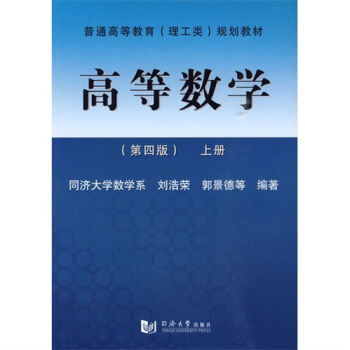



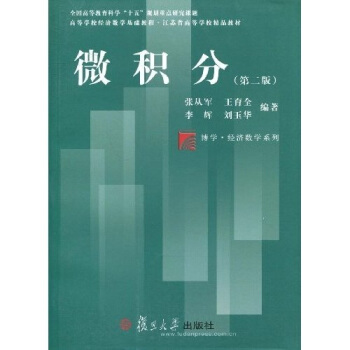
![遗传变异分析实验指南 [Genetic Variation A Laboratory Manual] pdf epub mobi 电子书 下载](https://pic.tinynews.org/10320460/c0a10fdb-3baf-4f34-a2aa-1852fbc5dcfe.jpg)
